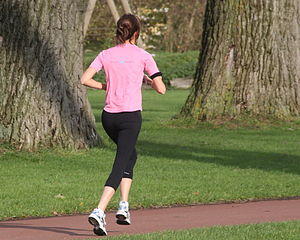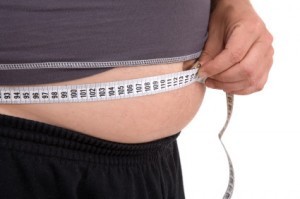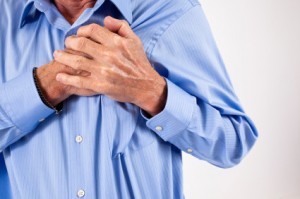10 Warnings That Your Heart May Be Unhealthy
Most heart conditions are said to be silent. This means that a person will experience little to no symptoms at the outset. It can be years or even decades before symptoms develop, and even when it does many people ignore it initially. Often there is no sure way of knowing if you have a heart problem without routine screening and diagnostic investigations which can be expensive. But there may be certain indicators of whether you have an unhealthy heart. Minor signs and symptoms that may be the first signals that all is not well with your ticker. Or factors that could mean that you are at high risk of having certain heart problems or may already have it despite there being no symptoms.
Diminishing Stamina
Our stamina for physical activity is directly related to our fitness level. But sometimes even the most avid gym and sports enthusiast may have an unhealthy heart. If the heart cannot circulate enough oxygenated blood through your system, you will feel tired. If you have noticed that you get tired more easily, particularly when walking or partaking in other physical activities, it may be a warning that all is not well with your heart. It is important to put in perspective though. If you are not physically conditioned to run a mile then you will get tired well before you reach your goal. The warning is more serious when things that you could previously do relatively comfortably now becomes tiring after short bouts.
Not Enough Air
Being short of breath is not entirely abnormal if you are not physically fit and undertake strenuous activity. But where shortness of breath should be considered as symptoms is when it is uncharacteristic for your fitness level, like being short of breath after walking up a flight of stairs that you normally traverse daily without any difficulty. Even more serious is when you become short of breath when at rest or after short bouts of talking. As your heart condition worsens, shortness of breath becomes more obvious. Initially most people will not want to admit that they are short of breath and rather label it as “not getting enough air”. But in the early stages it is often difficult to spot and most people realize that they were experiencing a problem after the heart condition is diagnosed.
Belly Fat and Waist Size
Your abdominal fat is directly related to your risk of cardiovascular disease. But do not breathe a sigh of relief just yet if your body weight is normal and so is your waist size. The risk lies in what is called visceral fat. These are fat deposits around organs and cannot be seen as surface fat. While it is true that the amount of surface fat (subcutaneous fat that is under the skin and visible) correlates with visceral fat, you should be cautious if you are diabetic, over 40 years and/or live a sedentary life while eating high calorie and hight fat foods. Visceral fat may be lurking out of sight and increasing your risk of heart disease despite abdominal obesity not being evident.
Bad Diet and Habits
We all know what is good and bad when it comes to diet. You do not have to be a nutrition expert to know when your eating habits are not healthy. Media has played a major role in educating the general public about the do’s and don’ts of food. As you get older your risk of heart disease increases, and more so if you are not following a proper diet. Even if you are going with only low fat options, excess calories in other foods can still be converted to fat. Just as bad is cigarette smoking and alcohol consumption. The link between cigarette smoking and heart disease is well know by every adult. But before you think that alcohol is good for your heart, there is a growing body of evidence to suggest that it is the quantity and type of alcohol that is more important.
Middle-Aged Couch Potato
Common heart diseases like coronary artery disease can affect all age groups and people of different levels of physical fitness. But if you are over 40 years and largely sedentary then your risk is significantly higher. The fact is that as your age advances, exercise becomes more necessary. It is important even for children but in older adults, exercise can change your risk profile significantly. It can reduce your risk of hypertension, hypercholesterolemia, atherosclerosis and diabetes among other conditions – all of which are major factors in the development and severity of heart disease. Just 150 minutes of exercise in a week, preferably in 5 daily sessions of 30 minutes, can make all the difference.
Occasional Chest Pain
Many aches and pains in the body occur at times for no significant reason, like leg pain, abdominal pain and headache. Similarly the odd bout of chest pain may be nothing more than muscle strain. But occasional chest pain should not be ignored irrespective of how mild it is. Even if it is not the typical cardiac chest pain, you should have it investigated especially if you are older than 40 years with a family history of heart disease and a smoker. Other risk factors like hypertension and hypercholesterolemia also apply. Many people who suddenly have a heart attack recall months of non-specific chest pain that they largely ignored because it did not seem to be like a heart problem.
Reflux Persists After Antacids
Acid reflux is one of the most common gastrointestinal complaints. We all have experienced it and know the typical sensation of heartburn. But often it masks the symptoms of heart disease. Many people who thought that they were suffering with heartburn due to acid reflux were actually experiencing angina. Conversely, many people who report to emergency rooms with chest pain, often fearing a heart attack, actually have reflux. One of the characteristic features of reflux heartburn versus angina is that this type of cardiac pain does not ease with antacids. If you think you have severe acid reflux and antacids do not help, then it may be worth going for a cardiovascular check up.
Family Heart Problems
The genetic component in many conditions with a strong familial tendency has not as yet been identified. Even when it is not your genes at work, it may be environmental factors that you share in common with parents and siblings. If any of your parents or siblings have a history of heart disease, then you should be cautious. Regular screening is important for early diagnosis and rapid intervention. And even if your doctor gives you the all clear for now, you should look at ways that you can alter your risk profile. More exercise, less high calorie and fatty foods. Lose weight, quit smoking and moderate your alcohol use.
‘Dead’ Tired and Sleepy
All too often people with heart disease report no significant symptoms and never know that they have a cardiac problem. A heart attack comes as a surprise as does a diagnosis of some other type of heart disease. Even when the chest pain and shortness of breath is not obvious, subtle signs and symptoms that were present were ignored at the time. Feeling so tired that you cannot do anything but sleep and sleepiness that persists throughout the day could be signs of heart problems. There are a host of other causes as well, such as sleep-related disorders, thyroid problems, diabetes and so on. But do not ignore the fatigue and excess daytime sleepiness if present. These could be heart symptoms.
Depression and Sexual Dysfunction
Mood changes long before noticeable physical symptoms start has been reported in heart disease. It may be linked to the fatigue, sleepiness and reduced stamina that occurs with heart disease. But it may also be a symptom on its own and in a way your body may be telling you that “all is not well”. Just as significant is sexual problems and its link to cardiovascular disease. Recent research has established that this link is significant in men. Erectile dysfunction may be a sign of heart disease and the common reasons could be clogged arteries of the respective organs. In addition, psychological stress plays a major role in both depression and sexual dysfunction and is known to be a risk factor for heart disease as well.










